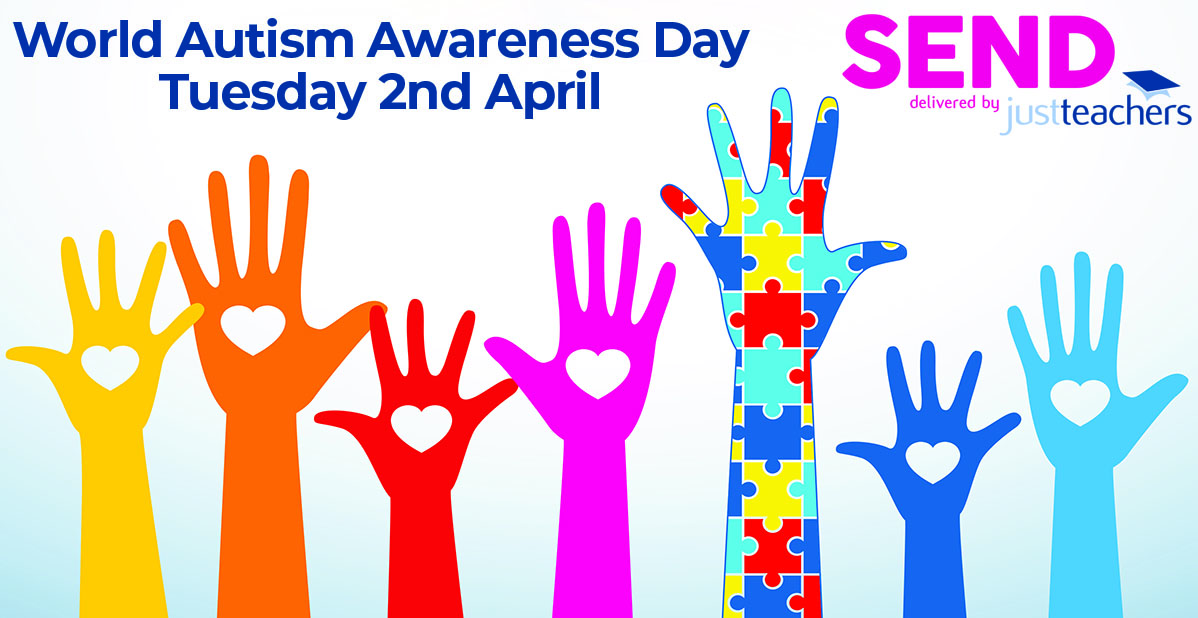World Autism Awareness week…. recognising the signs and early intervention
Published: Monday April 01 2019 by Melanie Crewe
World Autism Awareness Week 2019.
Recognising and supporting a child with autism

Teachers will undoubtedly work with an autistic pupil at some point in their career, who may or may not have already been diagnosed as being on the autistic spectrum. This makes being aware of the signs and behaviour displayed by the child all the more important for early intervention.
There are many tell-tale indicators that may suggest a pupil is on the autism spectrum. The below are just a selection and not an indicative checklist:
-Obsessional rituals with extreme difficulty adapting to change
-Difficulties with communicating and maintaining eye contact, or conversely excessive staring
-Makes very few gestures
-Tendencies to talk at people rather than having a reciprocal conversation
-Repeats the same words or phrases over and over without communicative intent
-Difficulties in making and maintaining friendship groups- may show some signs of aggression
-Extreme sensitivity to some sensory stimuli- low threshold to sensory overload
-Lack of awareness of danger
It is important once a diagnosis has been reached (through the correct medical channels) and the teacher has been fully informed by the parent that this is the case, to consult with the SENCO within the school. An autistic pupil is likely to have SEN or ASN (additional support needs) and will be entitled to additional help and support.
The school must adopt an approach which involves all members of staff, and maintains open communication with both the pupil and parents/guardian.
There are certain informal ways that a teacher can help a child with autism in the classroom:
-Use a mutually agreed routine and if this needs to be amended ensure ample preparation is given
-Tell social stories to develop their social understanding
-Be vigilant and deal with bullying promptly
-Encourage the keeping of a behavioural diary including stress scale
-Agree a safe place/quiet place that a child can retreat to
-In addition to support/differential teaching within the classroom, careful consideration needs to be given towards homework and exams
For more information on the behavioural traits displayed by a child with autism, and a further exploration of support areas, please visit the following useful resources:
https://www.nice.org.uk/guidance/cg128
At justteachers we have nationwide teams that are dedicated specifically to SEN teaching staff and schools requiring SEN support. Please contact your local branch and team here.






